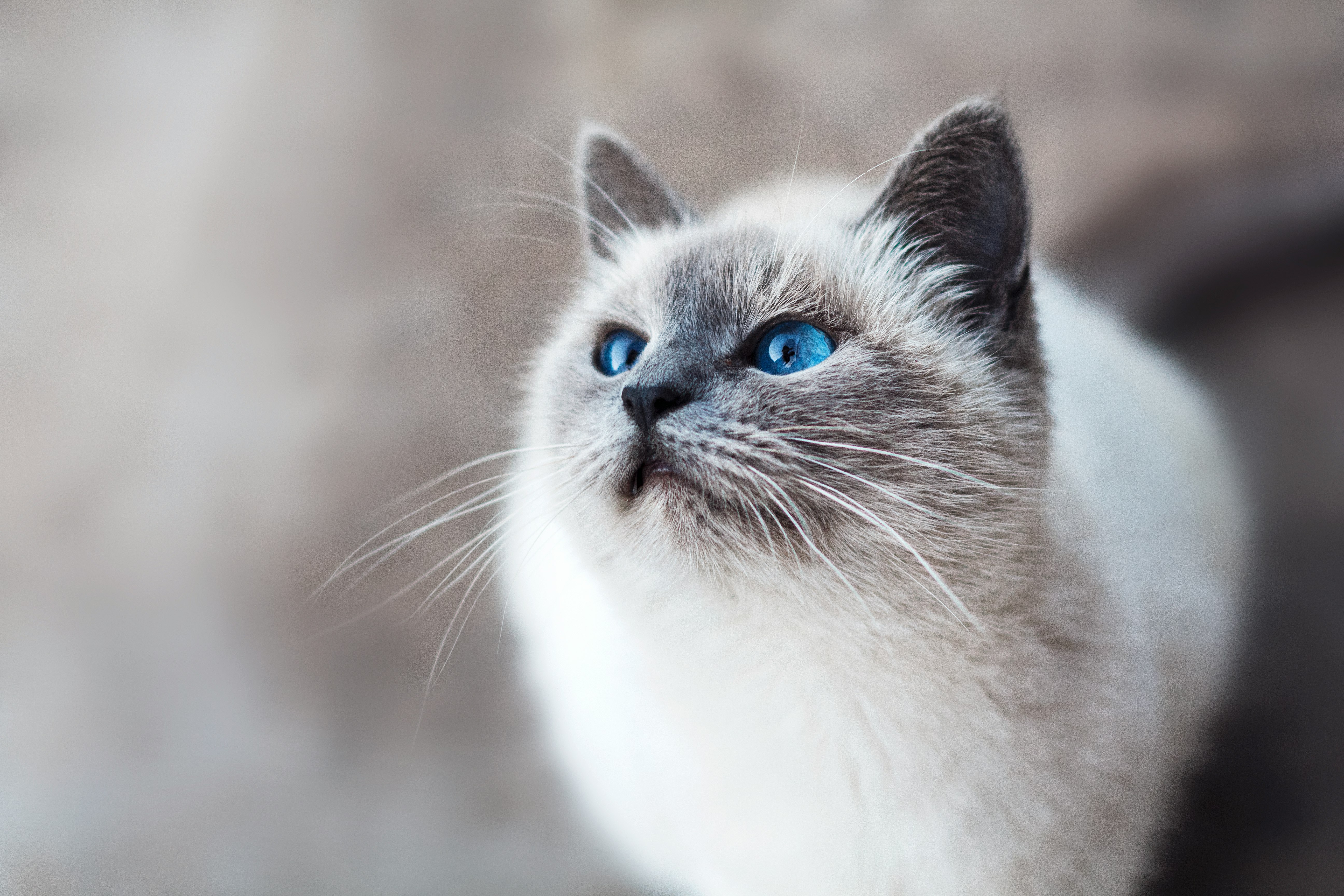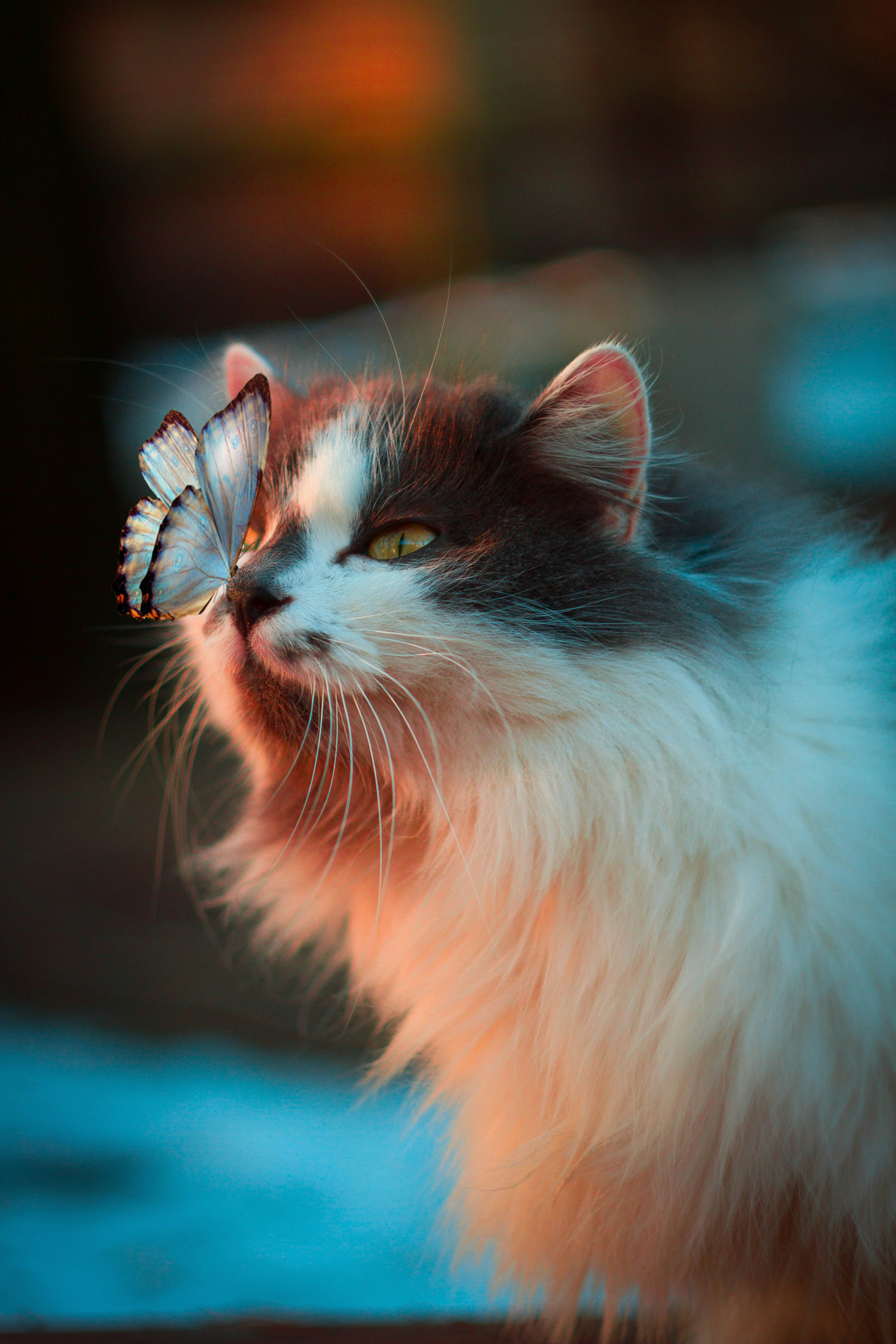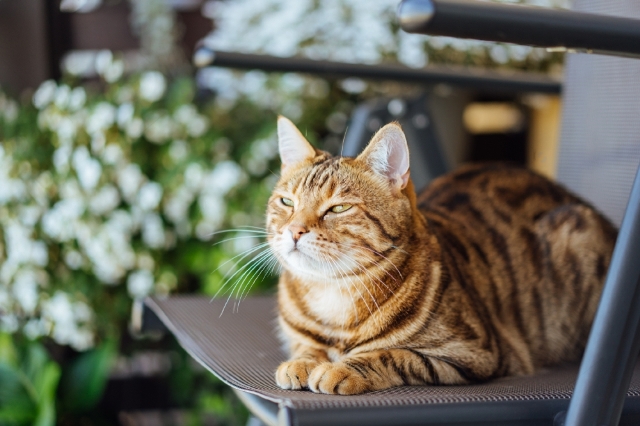If your beloved cat is eating a lot less than usual but acting normal, it can be concerning. Cats are usually very particular about their eating habits and changes in appetite can be a sign of a bigger problem. In this blog post, we’ll investigate why your cat may not be eating as much as usual, and how to address the issue.
Common causes of decreased appetite in cats include stress, an underlying medical condition, or a change in their environment. If you’ve noticed that your cat isn’t eating as much as usual, it’s best to speak to your veterinarian to rule out any medical issues.
In some cases, cats may not be eating enough due to changes in their diet or stress caused by a change in their environment. If you’ve recently moved, added a new pet, or changed your cat’s diet, this could be the cause.
To help your cat adjust to their new environment, try providing them with more hiding spots and interactive toys, as well as plenty of food and water. With some patience and understanding, you can help your cat adjust and get back to eating their normal amount of food.

Why is My Cat Eating Less but Acting Normal?
If your cat is eating less but acting normal, it could be a sign of a few different things:
1. Your Cat is Simply Not Hungry
If your cat is not eating as much as usual but still seems to be acting normal, it may just not be that hungry. Cats are quite finicky eaters and can often go days without eating much at all. While it’s important to keep an eye on their eating habits, it is likely that your cat is simply not hungry. Make sure to provide them with a variety of foods to choose from and they should start eating again soon. If their lack of appetite persists, you should consult your veterinarian as it could be a sign of an underlying health issue.
2. Does Not Like the Food
If your cat isn’t eating much but is still acting normally, it could be because they don’t like the food you are giving them. Cats have very sensitive palettes and can be picky eaters, so it’s important to find a food that they actually enjoy. Try out different brands and flavors to see what your cat likes. If your cat still doesn’t seem interested in their food, consider adding a little bit of wet cat food or treats to the meal as a reward. Make sure to keep an eye on their weight, as cats should not go too long without eating.
3. Your Kitty is Sick and May Have Medical Problems
If your cat is not eating much but acting normally, it could be a sign of a medical problem. It is important to take your cat to the vet if they are not eating normally. The vet can run tests to determine the cause of the reduced appetite and provide the necessary treatment. Common medical issues that can cause cats to stop eating include dental disease, gastrointestinal problems, kidney disease, and other conditions. If these conditions are left untreated, they can become severe and cause more serious health problems. If your cat is not eating much but acting normal, make sure to take them to a vet as soon as possible.
4. Your Cat Was Recently Vaccinated
If your cat was recently vaccinated and is not eating much but otherwise acting normal, it may be a sign of a mild reaction to the vaccine. Cats are known to experience some level of discomfort after vaccination, particularly if they were not given any anti-inflammatory medication beforehand. It is important to monitor your cat for any changes in its behavior and contact your veterinarian if you have any concerns about its health. In most cases, the lack of appetite will pass within a few days. However, if the symptoms persist or worsen, you may need to seek veterinary care to address the issue.
5. Psychological Stress and Behavioral Problems
Cats can exhibit psychological stress and behavioral problems when they are not eating enough food. A cat’s appetite can be affected by a variety of factors such as changes in their environment, stress from other animals in the home, or an underlying medical issue. If your cat is not eating as much as usual but is still acting normally, then it may be experiencing psychological stress and behavioral issues.
It is important to take your cat to the veterinarian so they can properly diagnose and treat any underlying medical issues. Additionally, it is important to make sure your cat’s environment is stress-free and comfortable to help ease their anxiety and ensure they are getting the proper nutrition.
6. Your Cat Does Not Like to Travel
If your cat is not eating much but still acting normal, it could be a sign of stress. Cats do not like to travel, so if your cat has recently been exposed to a new environment, it may be feeling anxious or overwhelmed. This can lead to a decrease in appetite. Make sure to provide your cat with plenty of comfort and security to help them feel more at ease.
Stick to their regular feeding schedule and provide them with plenty of fresh water. Additionally, providing them with a few treats every now and then can also help to encourage your cat to eat. If your cat’s lack of appetite continues for more than a few days, consult your vet to make sure there are no underlying health issues.
Signs Your Kitty Doesn’t Like Their Food
If your cat is not eating much but acting normally, there could be a few signs of a problem. For instance, your cat may be avoiding the food bowl, leaving food in the bowl uneaten, or not showing interest in eating.
Additionally, your cat may be producing less saliva than usual, have bad breath, or act uncharacteristically lethargic. If you notice any of these signs, it’s important to take your cat to the vet to determine the underlying cause.
How to Know Whether Your Cat Ate Already

If your cat is not eating much but seems to be acting normal, there are a few things you can do to determine whether or not your cat has already eaten. First, check to see if the food bowl is empty. If not, then your cat may have already eaten.
Additionally, you can check for signs of digestion, such as licking their lips or grooming themselves, which could suggest that they have recently eaten. Finally, you can check your cat’s litter box.
If there is a stool present, then this could suggest that your cat has recently eaten. It is important to remember, however, that cats may not eat as much as they should, so you should always keep an eye on your cat’s eating habits.
Diseases That Could Cause the Loss of Appetite with No Behavioural Changes at the Beginning
Cats may not always show behavioral changes at the beginning of a disease that causes them to lose their appetite, but this is a symptom of many illnesses. Common diseases that can cause cats to lose appetite with no behavioral changes include urinary tract infections, gastrointestinal issues, dental problems, and kidney disease.
Other illnesses such as cancer, feline immunodeficiency virus (FIV), and feline infectious peritonitis (FIP) can also cause a decrease in appetite with no behavioral changes. If your cat is not eating much but seems to otherwise be acting normal, it is important to take them to the vet for a checkup to rule out any serious illnesses.
How Can Vaccination Impact Your Cat’s Appetite?

Cats can be very sensitive to changes in their environment and routine, which can affect their eating habits. Vaccinations may also have an effect on their appetite. If your cat is not eating much but is acting normally, it could be a sign that the vaccination has impacted its appetite.
It is important to monitor your cat closely after receiving a vaccine to ensure that they are eating enough. Your vet can provide additional advice and guidance if necessary. Vaccinations are an important part of keeping your cat healthy, but it is also important to be aware of how they can impact your cat’s appetite.
Can Medication Cause a Loss of Appetite In Cats?
Medication, especially corticosteroids, can cause a cat to not eat much and act normally. Other medications such as antibiotics, anti-inflammatory drugs, antifungals, and heartworm preventatives can also cause a decrease in appetite.
Additionally, cats may not want to eat if they are ill or in pain. If your cat is not eating much but still acting normal, it is important to have them checked out to determine the reason for the decrease in appetite.
How is Anxiety Connected to the Loss of Appetite In Cats?

It is not uncommon for cats to exhibit a loss of appetite when they are feeling anxious. Anxiety can manifest in cats in many different ways, including loss of appetite. Cats who are feeling anxious may act normal but will eat significantly less than usual. With anxiety and stress, cats may also groom themselves excessively, vocalize loudly, hide, or display other signs of unusual behavior.
It is important to consult a veterinarian if a cat is not eating enough, as this could be a sign of a larger problem such as an underlying medical issue or a behavioral disorder. If anxiety is the cause, the focus should be on reducing stress and creating a more comfortable environment.
What to Feed a Cat Who’s Been Avoiding Food
If your cat isn’t eating much but is still acting normal, you can try to encourage your cat to eat by offering them their favorite foods. Make sure to provide small and frequent meals as well as a variety of wet and dry food.
You can also try different flavors and textures to see what appeals to your cat. If your cat still isn’t eating, try adding a few drops of tuna water or chicken broth to the food to make it more appealing. Finally, make sure to provide plenty of fresh water for your cat to stay hydrated.
How to Encourage Your Cat to Eat?

If your cat is not eating much but is acting normally, it is important to encourage your cat to eat. One way to do this is to feed your cat smaller, more frequent meals. Try offering a variety of food options, such as canned food or wet food, to entice your cat to eat.
You can also warm up their food slightly or add a bit of wet food to dry food to make it smell more appealing. Additionally, consider adding a few drops of tuna juice or a bit of cooked chicken to the food to make it more appealing. If you are still having trouble getting your cat to eat, it may be a good idea to consult your veterinarian to rule out any underlying medical issues.
Conclusion
In conclusion, it is important to keep an eye on your cat if they are not eating much but acting normal. If the behavior continues or worsens, it is best to take them to the vet to get a proper diagnosis and treatment. In some cases, the lack of appetite may be due to a medical condition and require treatment. If the cat is eating normal treats, try offering them different types of food and flavors to see if that helps.

